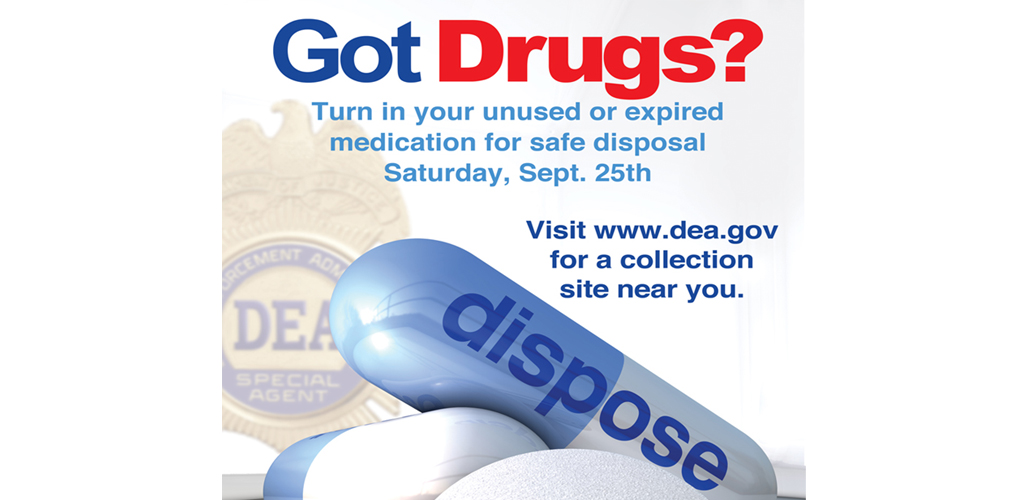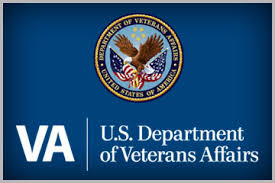Welcome to the Department of Veterans Affairs Pharmacy Benefits Management (PBM) Services
Federal Pharmacists are essential to health care access and delivery in the United States; recognized as health care providers of patient-centered primary and specialty care, and as trusted public health leaders. As experts in medication use and comprehensive pharmacy services, we promote wellness, prevent and manage diseases, ensure patient safety and optimize health outcomes in collaboration with the health care team.
The VA Pharmacy Benefits Management Services offer a broad range of services and are committed to provide and deliver Veterans personalized, proactive, patient-driven health care.
Our Mission: To improve the health status of Veterans by encouraging the appropriate use of medications in a comprehensive medical care setting.
Medication – Prescription copayment charges were established by Congress. The charge ranges from $5 to $11 for each 30 day or less supply of medications provided on an outpatient basis for.
Our Goal: To provide Veterans with reliable, evidence-based medication information in an efficient manner so you along with your health care team can make informed decisions about your medications and improve your overall health.
- The tiered structure established copayments for 30-day prescriptions at $5 for Tier 1 (top 75 generics), $8 for Tier 2 (all other generics) and $11 for Tier 3 (sole source/brand name). Veterans in Priority Groups 2 through 8 are limited to a $700 annual copayment cap.
- Medication copayments are charged for all over-the-counter medications, such as aspirin, cough syrup, and vitamins that are dispensed from a VA pharmacy. You are not charged a medication copayment for medical supplies (syringes, alcohol wipes, etc.) or for medications administered during treatment.
Ordering Prescriptions Online!
To order your prescriptions only, please visit My HealtheVet where you can register to manage your VA prescription refills. Reddit draw on mac screen app.

Tiered Copay
Click here to view the current Tiered Copay list
Click here to learn more about Tiered Copay
What's New at PBM?
| 6/11 | Dolutegravir (Juluca, Tivicay, Triumeq) and Potential Risk for Neural Tube Defects- National PBM Bulletin |
| 6/11 | AMENDMENT - Accu-Chek Aviva Plus Health Network Strips Urgent Medical Device Correction - Heparin and Saline Syringe Recall Due to Contamination - National PBM Patient Level Recall Communication |
| 6/11 | Accu-Chek Aviva Plus Health Network Strips Urgent Medical Device Correction - National PBM Patient Level Recall Communication |
| 6/11 | Heparin and Saline Syringe Recall Due to Contamination - National PBM Patient Level Recal Communication |
| 6/11 | Synthetic Marijuana and Potential Risk for Bleedinf UPDATE - National PBM Bulletin |
| 6/11 | Medication Safety in Seconds Newsletter - Issue 5; Volume 8; May 2018 |
| 6/11 | Medication Safety in Seconds Newsletter - Issue 4; Volume 8; April 2018 |
| 6/11 | Medication Safety in Seconds Newsletter - Issue 3; Volume 8; March 2018 |
| 3/21 | Sofosbuvir/Velpatasvir (Epclusa) and Sofosbuvir/Velpatasvir/Voxilaprevir (Vosevi) Look-Alike/Sound-Alike Potential - National PBM Bulletin |
| 12/11 | Medication Safety in Seconds Newsletter - Issue 9; Volume 7; October 2017 |
| 12/11 | Medication Safety in Seconds Newsletter - Issue 8; Volume 7; September 2017 |
VA Medication Safety
VA National Formulary
Pharmacy Residencies
VA Medication Safety
VA Center for Medication Safety is a comprehensive pharmacovigilance program that evaluates preventable Adverse Drug Events (ADEs) via conducting and promoting medication safety projects at the regional and national levels, providing interventions to decrease preventable ADEs, and educating the field on safe and best practices to minimize ADEs. The VA Center for Medication Safety provides feedback and guidance regarding ADE data unique to each Veterans Integrated Service Network (VISN), while translating research and published evidence into national policy through its oversight of, and cooperative arrangements with, VISN Formulary Committees and Pharmacy leaders, the Medical Advisory Panel as well as other departments within VA. Learn more >>
VA National Formulary

The purpose of the VA National Formulary is to provide high quality, best value pharmaceutical products while assuring the portability and standardization of the pharmacy benefit to eligible Veterans accepted by the Department of Veteran Affairs for care. The Pharmacy Benefits Management Formulary Management Program Office is responsible for coordinating the VA formulary management process with the Medical Advisory Panel and VISN Pharmacist Executives Committee. It has the following responsibilities:
- Developing and maintaining an Evidence-based formulary
- Standardizing the drug benefit across the VA system to reduce geographic variation in cost and utilization
- Promoting appropriate drug therapy
- Improving drug safety
- Improving the distribution of pharmaceuticals
- Reducing drug inventory and acquisition costs
Learn more >>
Pharmacy Residencies
The VA Pharmacy Residency Programs are residencies of choice. The Pharmacy Residency Program Office (PRPO) oversees the strategic planning of pharmacy residency programs and supports the growth and expansion of residency programs nationwide. VA has over 236 residency programs and over 600 residents and fellows in a variety of specialty training such as Geriatrics, Oncology, Pharmacy Administration, Pharmacotherapy, Infectious Disease, Pharmacoeconomics, Managed Care, Ambulatory Care, Cardiology, Mental Health and many more. The PRPO is dedicated to VA's mission to care for the needs of Veterans and to do so, has expanded the Mental Health Pharmacy Residency programs. VA is the largest trainer of Mental Health Pharmacy residents with the highest percentage of Board Certified Psychiatric Pharmacists in the country. Moreover, VA is transforming the way residents are trained and interact in a professional program. Inter-professional training programs are growing in VA and offers the trainees of all health care professions the ability to learn from each other and develop close professional relationships and working teams. Download quickbooks for mac 2016 desktop. VA also offers direct patient care opportunities for residents to learn how to work as a clinical pharmacist in today's health care environment. VA is a health care system that will meet all of your learning needs and support you professionally throughout your VA career. Join the VA team and become a member of our pharmacy experts and award winning teams! Learn more >>

- Patients & Visitors
- Patient Information
- Visitor Information
- Locations & Directions
- Driving Directions, Parking & Maps
- VA Clinics
- Compare your VA Facility
- Health Care Services
- News & Events
- About Us
- Contact Us
- Operating Status
Medication Copays Changing
Prescription copays have been restructured and will lower the costs of outpatient medications for most Veterans.
The Department of Veterans Affairs (VA) is amending its regulation on copayments for Veterans' outpatient medications for non-service connected conditions. VA currently charges non-exempt Veterans either $8 or $9 for each 30-day or less supply of outpatient medication, and under current regulations, a calculation based on the medication of the Medical Consumer Price Index (CPI-P) would be used to determine the copayment amount in future years.
'Switching to a tiered system continues to keep outpatient medication costs low for Veterans,' said VA Under Secretary for Health Dr. David J. Shulkin. 'Reducing their out-of-pocket costs encourages greater adherence to prescribed outpatient medications and reduces the risk of fragmented care that results when multiple pharmacies are used; another way that VA is providing better service to Veterans.'
This new regulation eliminates the formula used to calculate future rate increases and establishes three classes of outpatient medications identified as Tier 1, Preferred Generics; Tier 2, Non-Preferred Generics including over-the-counter medications; and Tier 3, Brand Name. Copayment amounts for each tier would be fixed and vary depending upon the class of outpatient medication in the tier.
These copayment amounts will be effective February 27, 2017:
- $5 for a 30-day or less supply - Tier 1 outpatient medication
- $8 for a 30-day or less supply - Tier 2 outpatient medication
- $11 for a 30-day or less supply - Tier 3 outpatient medication
These changes apply to Veterans without a service-connected condition, or Veterans with a disability rated less than 50 percent who are receiving outpatient treatment for a non-service connected condition, and whose annual income exceeds the limit set by law. Medication copayments do not apply to former Prisoners of War, catastrophically disabled Veterans, or those covered by other exceptions as set by law.
Copayments stop each calendar year for Veterans in Priority Groups 2-8 once a $700 cap is reached.
| Frequently Asked Questions |
How can I transfer my prescriptions prescribed in the community to the VA System?
VA will fill prescriptions prescribed by a non-VA provider only if all the following criteria are met:
- You are enrolled in VA health benefits
- You have an assigned Primary Care Provider
- You have provided your VA health care provider with your medical records from your non-VA provider
- Your VA health care provider agrees with the medication prescribed by your non-VA provider. VA health care providers are under no obligation to prescribe a medication recommended by a non-VA provider.
How do I pay for my prescriptions?
You may provide payment via the following methods:
- Online: https://pay.gov
- By mail: P.O. Box 530269 Atlanta, GA 30353-0263
- In person: A VA Medical Center
- Pay by check, money order, or credit card payable to 'VA.' Include Account Number. Please do not send in requests for prescription refills with your payment. If you do, your prescription refill will be delayed.
Medication copayments are charged for all over-the-counter medications, such as aspirin, cough syrup, and vitamins that are dispensed from a VA pharmacy. You are not charged a medication copayment for medical supplies (syringes, alcohol wipes, etc.) or for medications administered during treatment.
How do I know if my medication is on the VA Formulary?
Pay My Va Prescription Bill
Please visit the Pharmacy Internet Formulary at http://www.pbm.va.gov/apps/VANationalFormulary/ to learn more.
How do I change my medication(s) to a lower tier?
A VA health care provider must make this determination. They will review any prescriptions and determine if the type of medication being taken can change to a lower tiered medication.
How do I refill my prescription?
Va Copay For Medications
Prescriptions can be refilled online, by mail, or by phone. Please visit http://www.va.gov/healthbenefits/access/prescriptions.asp for more information.Does The Va Have Copays
Note: Please do not send in requests for prescription refills with your payment. If you do, your prescription refill will be delayed.
 Where does the money go?
Where does the money go?Funds collected from medication copayments, other VA copayments, and health insurance reimbursements are used to provide additional health care services to Veterans.
Subscribe to Receive
Email Updates
